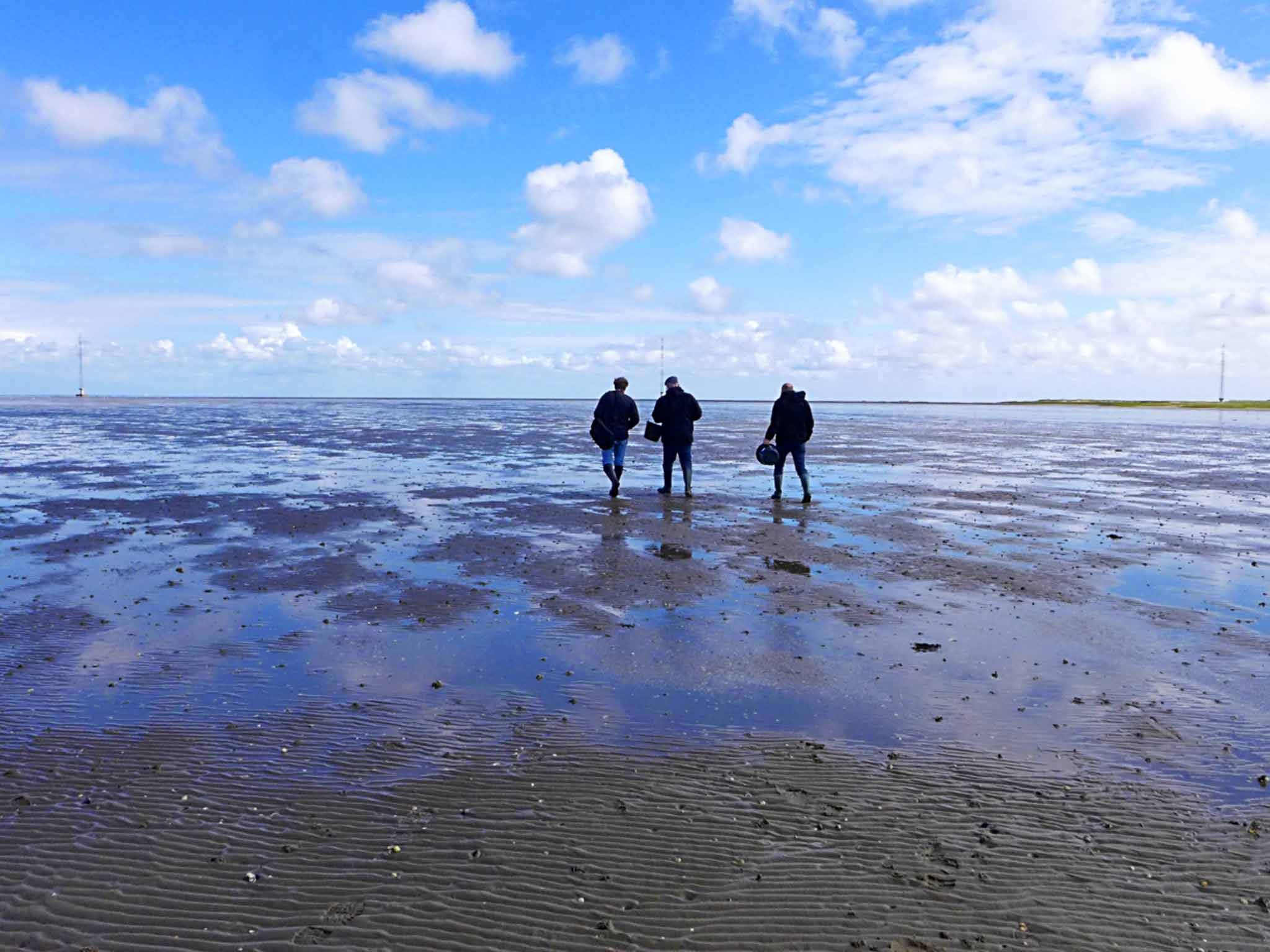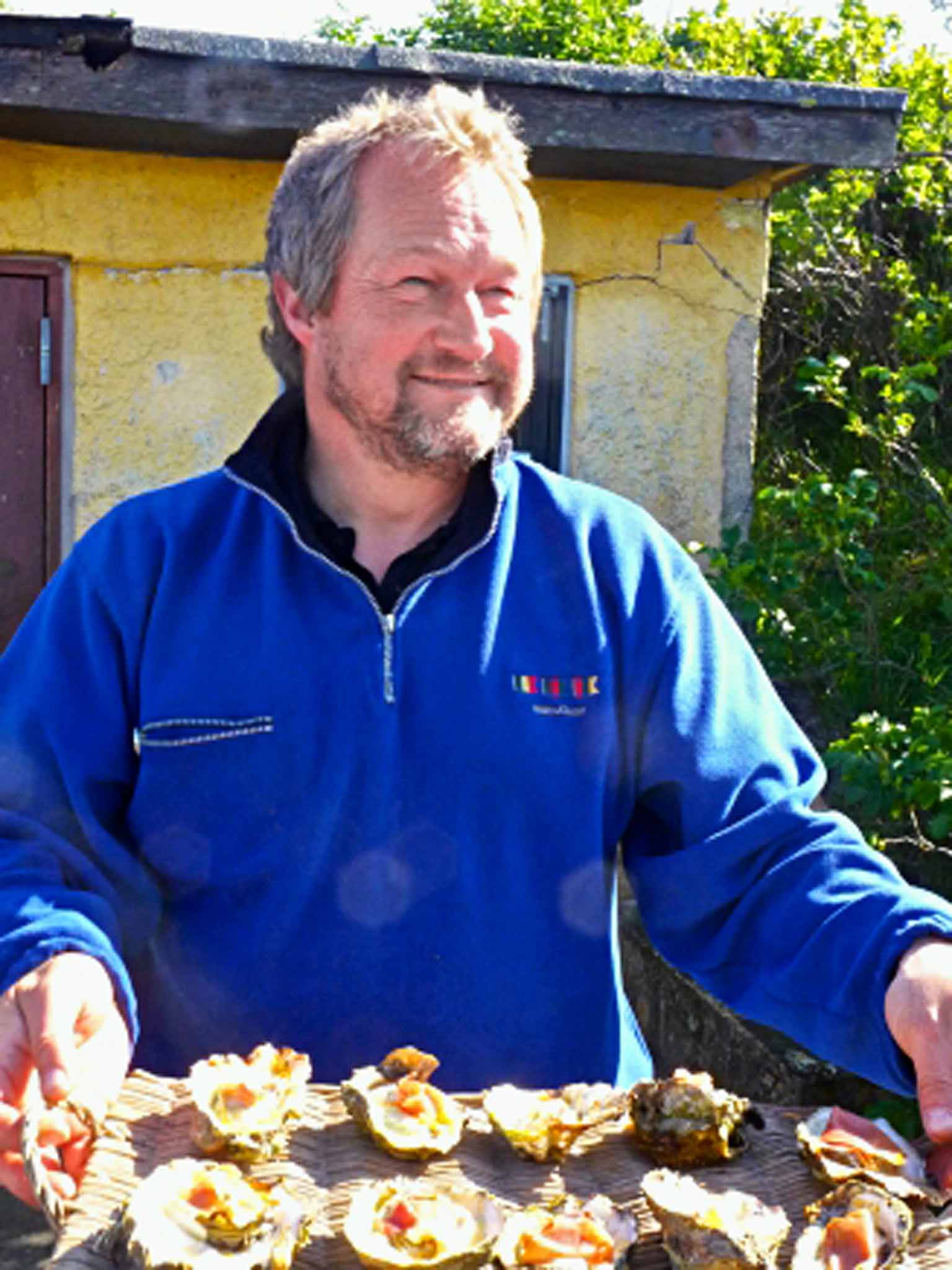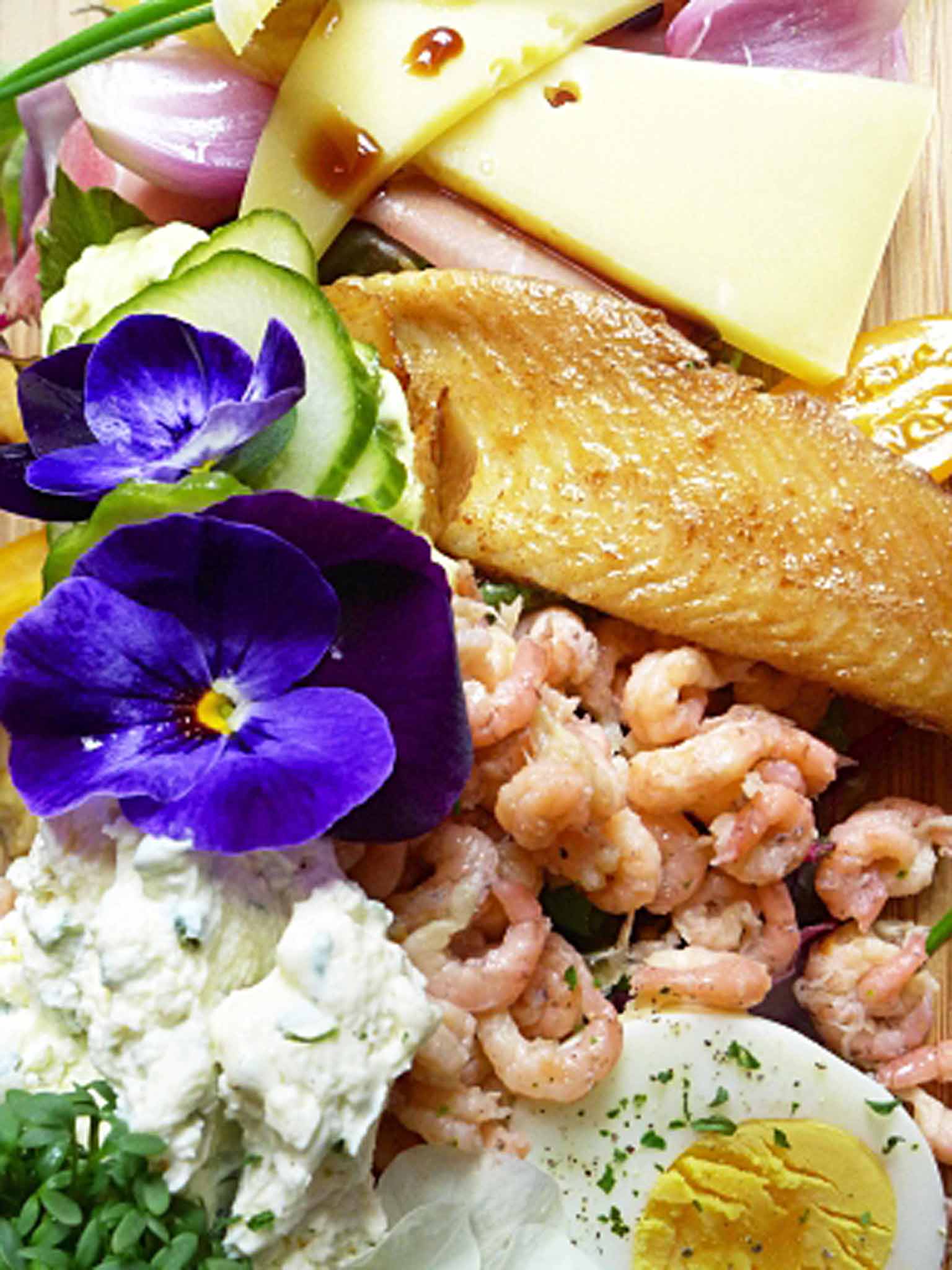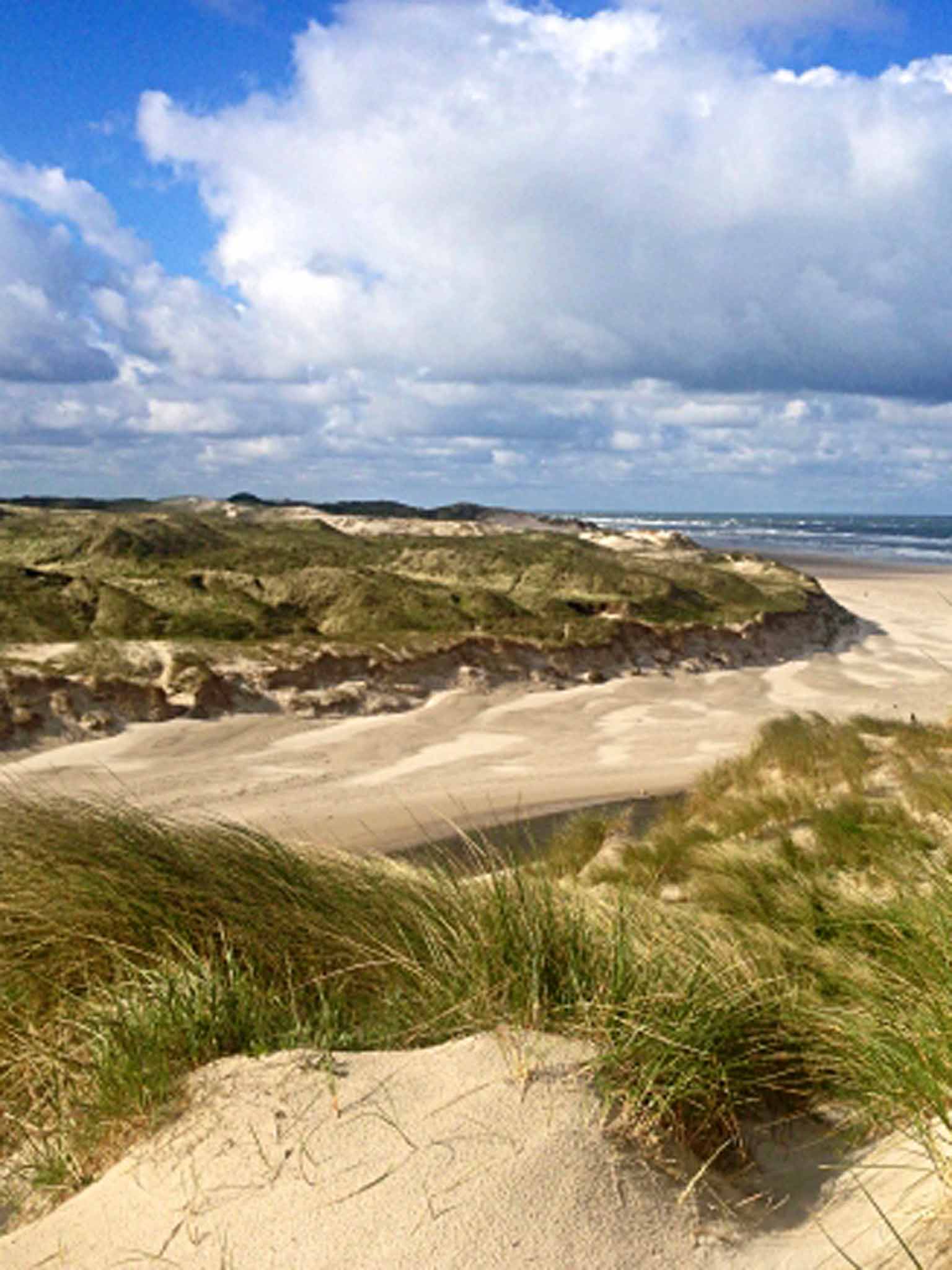Danish midsummer menu: In search of the finest oysters
Fiona Dunlop wonders how much Denmark's status as one of the world's happiest countries is linked to its passion for sustainable, high quality food

Your support helps us to tell the story
From reproductive rights to climate change to Big Tech, The Independent is on the ground when the story is developing. Whether it's investigating the financials of Elon Musk's pro-Trump PAC or producing our latest documentary, 'The A Word', which shines a light on the American women fighting for reproductive rights, we know how important it is to parse out the facts from the messaging.
At such a critical moment in US history, we need reporters on the ground. Your donation allows us to keep sending journalists to speak to both sides of the story.
The Independent is trusted by Americans across the entire political spectrum. And unlike many other quality news outlets, we choose not to lock Americans out of our reporting and analysis with paywalls. We believe quality journalism should be available to everyone, paid for by those who can afford it.
Your support makes all the difference.It was amid a Tarkovsky-esque, post-industrial landscape that I found myself scrabbling around for shellfish. Jesper, a Viking oyster king, had brought me to the mud-flats of Denmark’s wild west in search of succulent Pacific oysters.
Along with a group of assorted Danes and Germans, I squelched across the flats in search of large, primeval-looking shells that contained gustatory Nirvana. The further we walked, the heavier my bucket became. On returning to shore, beside an old German bunker, we gorged on the sweet, smaller oysters with a squeeze of lime, a slice of strawberry and twist of pepper, and the huge, meaty ones barbecued by Jesper.
The finest Jutland oysters end up on the tables of Copenhagen’s celebrated restaurants (the team from Noma once joined the same oyster expedition), with some of the remainder consumed around bonfires for midsummer – although they are in season year-round.

I was on Fano Island, reached in 10 minutes by car ferry from the industrial port of Esbjerg. Back in the 1920s, after centuries hosting only whalers and shippers, Fano became an aristocratic holiday retreat where high-fliers raced motorcars across the broad sands. Today, integrated into the immense Wadden Sea National Park that stretches south to Germany and the Netherlands, the island lures nature-lovers, kite and cart-surfers, plus increasing numbers of gastronomes.
A great starting point was the lively little harbour town of Nordby, where the shops brimmed with Jutland produce, from artisan cheeses to delicate, beech-smoked salmon, tiny shrimps, craft beer, honey, North Sea salt, bread, smoked ham, sausages, and preserves. At Rudbecks’ stylish deli-café, I tasted an exquisitely composed open sandwich topped with edible flowers (a recurring leitmotif across the region).

A short drive brought me to the southern tip and the more sedate village of Sonderho. In this bucolic time-capsule of solid, thatched houses, pheasants fluttered out of hedgerows, hares bounded across my path, roe deer nibbled at shrubs, and the North Sea winds whipped tall grasses between the dyke and the glittering sea.
Later, at the Sonderho Kro, a fine old kro (Danish inn) dating from 1722, I revelled in a five-course dinner served by a waiter whose impassioned lyricism matched the dishes and wines. Tender Wadden Sea lamb from saltmarshes just 30km away was made even better in this cosy interior of Dutch tiles, wooden rafters salvaged from shipwrecks, subdued colours and, of course, candles – a Nordic obsession.

Next day, back on the mainland, I headed north around the cove of Ho to walk off some excess. Here, stretching for miles and miles, were blinding white beaches edged by rolling sand-dunes, sprinkled with the herbs and wild flowers that are adored by foragers. Filling my lungs with salty air I picked my way along sandy tracks, only once spotting a lone figure in the distance.
Despite the endless low horizons and big skies, there were plenty of places to stop and eat, from a typical 1930s badehotel (beach hotel) tucked behind the dunes, to the charming Ho Kro, where I feasted on pickled brill with wild garlic, and veal with lingonberries, in a room packed with smartly dressed Danes. Half an hour inland across a wild, somewhat bleak landscape of heather-clad heath, low dunes, marram grass, pine-trees and splashes of yellow gorse, I found myself at Henne Kirkeby. This country inn is headed up by two Brits: the jovial Paul Cunningham – an expatriate of 21 years who previously lived in Copenhagen – and Garrey Dawson, formerly of The Fat Duck, now manager of this high-end, 12-room kro.
Although the original part of the inn, like the church towering beside it, dates from 1790, it is now an ultra cool enclave of modern art and design, including furniture by mid-century star Hans Wegner, who came from Tonder, in Jutland’s deep south. Outside, the vast vegetable garden had strong hints of Britishness in its eccentricities – a polytunnel for sipping aperitifs, the staff’s “secret garden”, beehives – and a helipad for the Copenhagen-based owner.
After a triumph of a tasting-menu in which each course rose to extraordinary visual and culinary heights, I collapsed in my plush yet minimalist room, watched by a stuffed duck on the Nissen & Gehl desk. I found myself wondering how much Denmark’s status as one of the world’s happiest countries was linked to its passion for sustainable, high quality food. There seemed an almost cult-like beatitude among the producers I met, as well as happy cows, happy chefs and happy eaters.
Getting there
Fiona Dunlop was a guest of VisitWestDenmark (020 7259 5958; visitwestdenmark.com). Ryanair (0871 246 0000; ryanair.com) flies from Stansted to Billund in Jutland.
Eating and staying there
Oyster Safari (00 45 2573 7333; fanosportevent.dk) offers a three-hour foraging session with oyster barbecue and wine for £15.
Sonderho Kro, Fano (00 45 7516 4009; sonderhokro.dk). Doubles from £150, B&B. Five-course tasting menu £60.
Henne Kirkeby Kro, Henne (00 45 7525 5400; hennekirkebykro.dk). Doubles from £150, B&B. Eight course tasting menu from £82.
Rudbecks Deli, Nordby, Fano (rudbecks.dk). Lunch from £9.
Ho Kro, Ho (00 45 7527 9044; hokro.dk). Three-course dinner £35.
Join our commenting forum
Join thought-provoking conversations, follow other Independent readers and see their replies
Comments